Robert Smith Park
Boy and Dog Park
1891: The location of the future park was part of the original plat of Langley
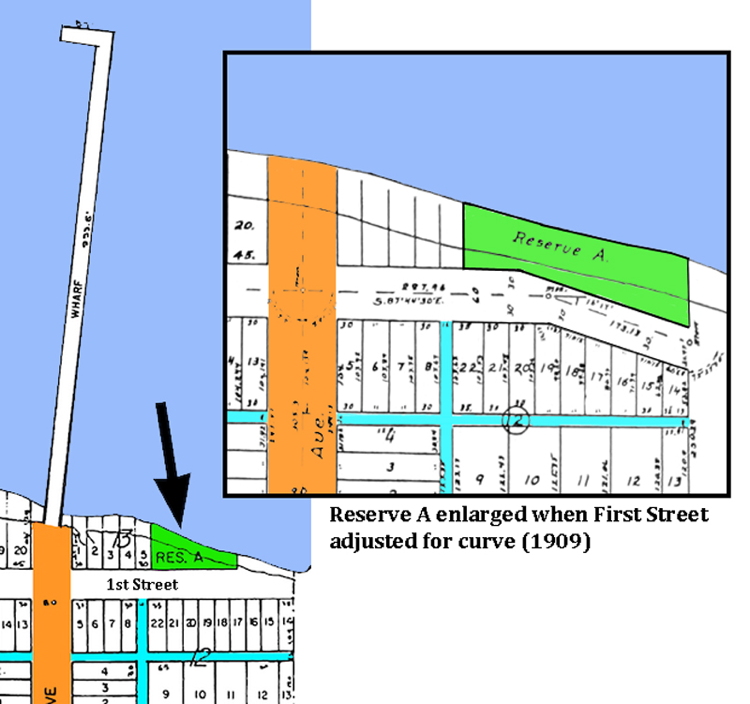
Original 1891 plat of Langley, and 1909 First Street adjustment (Courtesy South Whidbey Historical Society).
Robert Smith Park (also known as "Boy and Dog Park") is located on part of "Reserve A" (arrow) of the original 1891 plat of Langley that was enlarged when First Street was adjusted in 1909 to follow the shoreline.
1965: Robert Smith buys property
Robert L. Smith, a World War II veteran who worked his way into real estate, came to Langley in the early 60's when business was withering in the small town. A group of Langley business people recruited him to revitalize First Street. He purchased 180 feet of waterfront property stretching from the Dog House to the far edge of the park in 1965. Two thirds of the land he kept. The other 60 feet were deeded to the business group, known as Langley on Whidbey Island, Inc.
Smith then launched into what he terms, “The great restoration of the town of Langley.” Buildings were refurbished and new tenants were installed, primarily from his own family. A portion of Reserve A was set aside for a park. (Lisa Chapman, Whidbey Record, 1996)
1966: A totem pole carved by Mike Arnold was placed in the park.
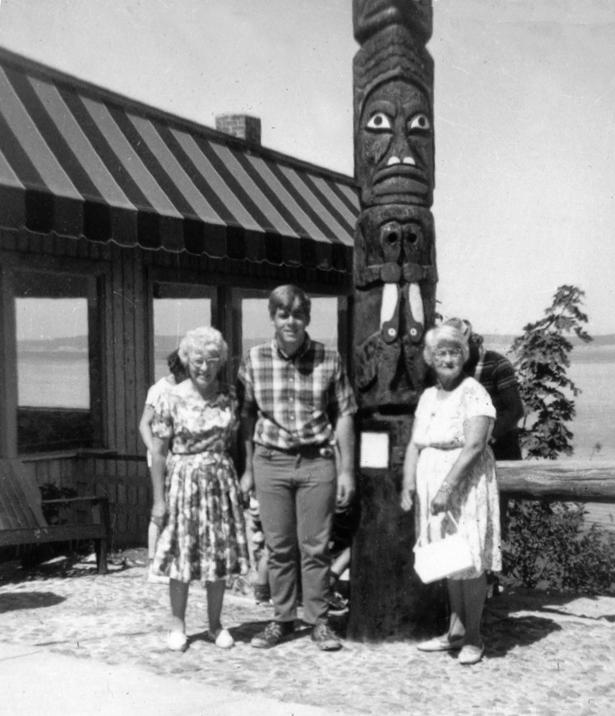
1966 Dedication of totem pole (Courtesy Anna Primavera)
Carver Mike Arnold (center) flanked by his mother Frankie Arnold (left) and grandmother (Marie Peters) at the dedication of his totem pole.
“A 22-foot totem pole was erected by linemen from the Puget Sound Power and Light Company at the park between the Langley Garage and the Drug Store…. Carved by 17-year old Langley High School student Mike Arnold based on ideas from Indian artifacts, the project took about three months. According to Mike, the figure at the bottom represents Frog Woman, who controlled the fish. Above her is the Raven who married Frog Woman to gain her knowledge. They quarreled an she threw all the fish into the sea and explained the migration of salmon to them. A frog sits above the Raven as a symbol of good luck and the salmon on either side represent abundance. The bear sitting above them represents power, and the Thunderbird at the top represented a symbol of God. The totem was dedicated to the early settlers of Langley.” (Whidbey Record, 1966)
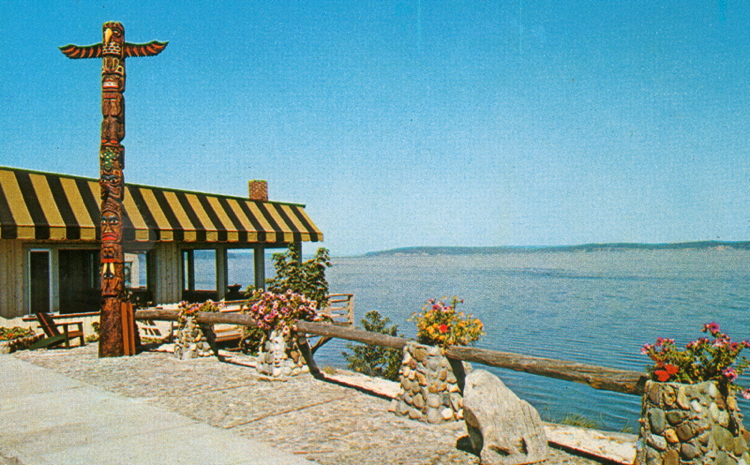
Circa 1970. Arnold's totem pole in park (Courtesy Betty Discher).
1969: Park deeded to the City of Langley
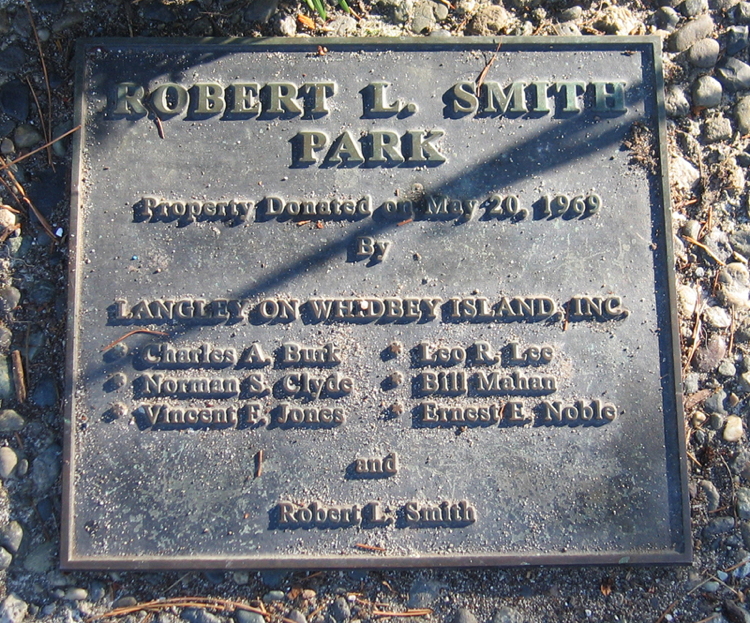
2015. Robert Smith plaque (Courtesy Robert Waterman).
The park was formally deeded to the City of Langley by members of Langley on Whidbey Island, Inc. on May 20, 1969. A plaque commemorating this fact, and the people who helped, was placed in the walkway. A stairway lead from the park to the beach below.
2008: New windows added on the east side.
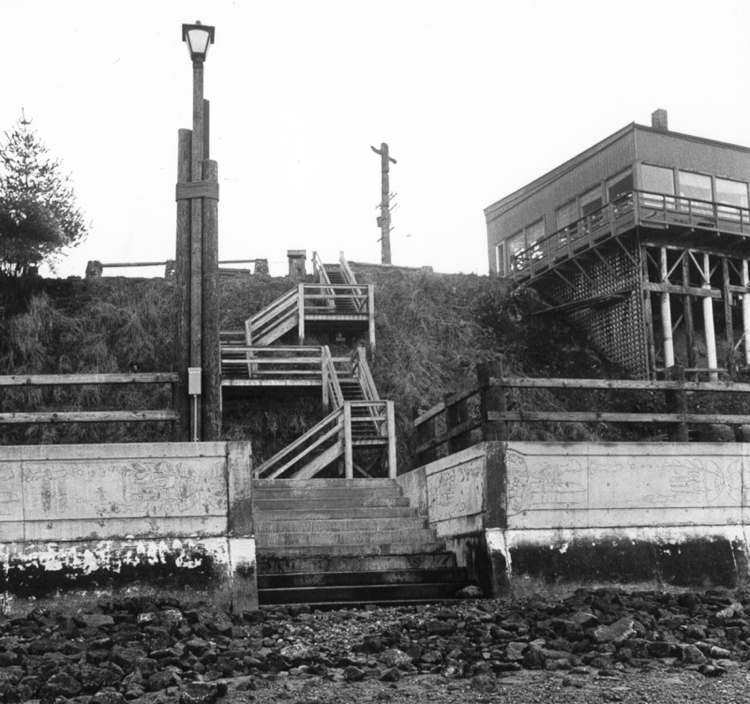
Circa 1980. Stairs from the park to the beach (Courtesy South Whidbey Historical Society)
1986: Georgia Gerber statue of a boy and his dog installed
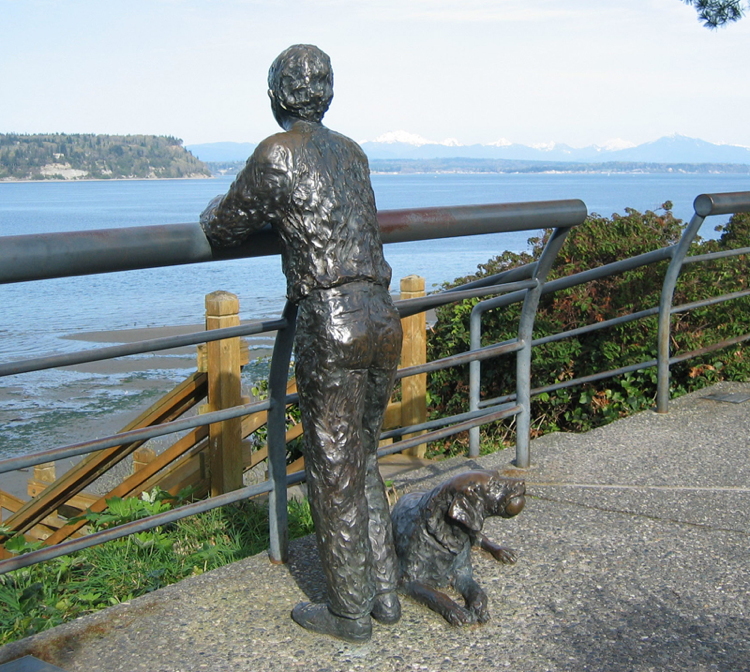
2008. Sculpture by Georgia Gerber (Courtesy Robert Waterman).
Statues of a boy and his dog by Whidbey Island sculptor Georgia Gerber were installed in the park in 1986. Mike Arnold’s totem pole was moved down First Street and placed next to the Dog House Tavern. It was moved again to Sea Wall Park some time later.
A plaque containing the names of those who helped with the project was placed next to the statues November 8, 1986.
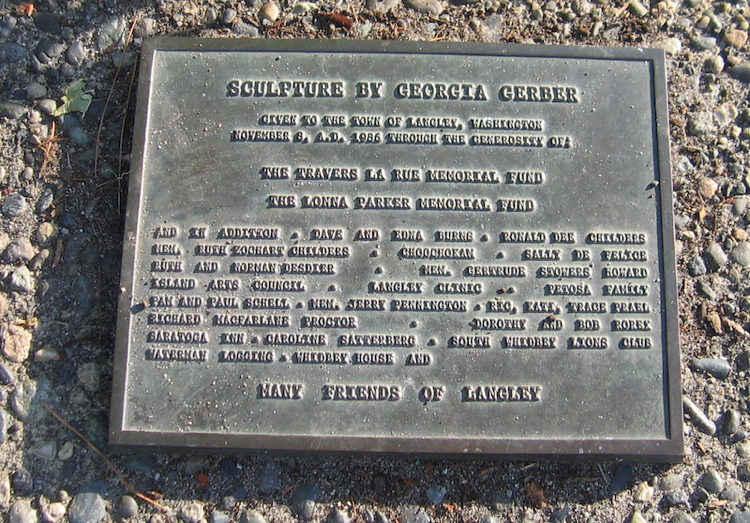
2008. Plaque commemorating Georgia Gerber and the people who supported the project (Courtesy Robert Waterman).
1989: New Stairs
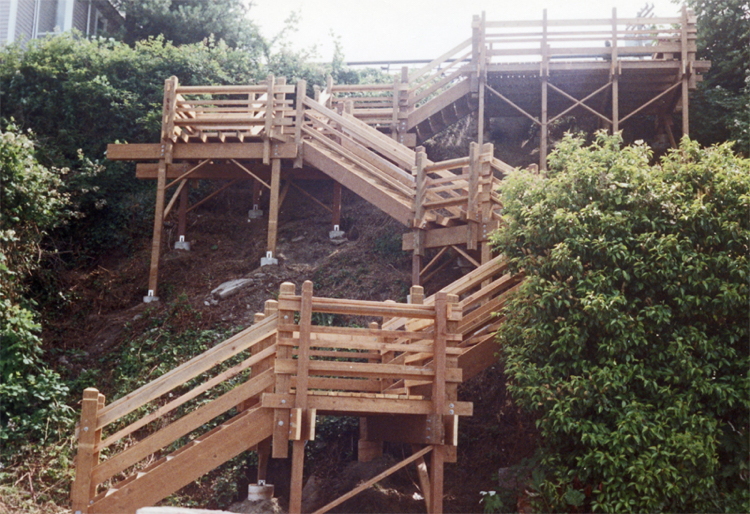
1989. New stairs (Courtesy Ron Childers)..
A new stairway with viewing platforms was constructed to replace the older stairs that had deteriorated. Designed by local architect, Ross Chapin, the project cost $9,165.30. It was completed in time for the Choochokam Art Festival.
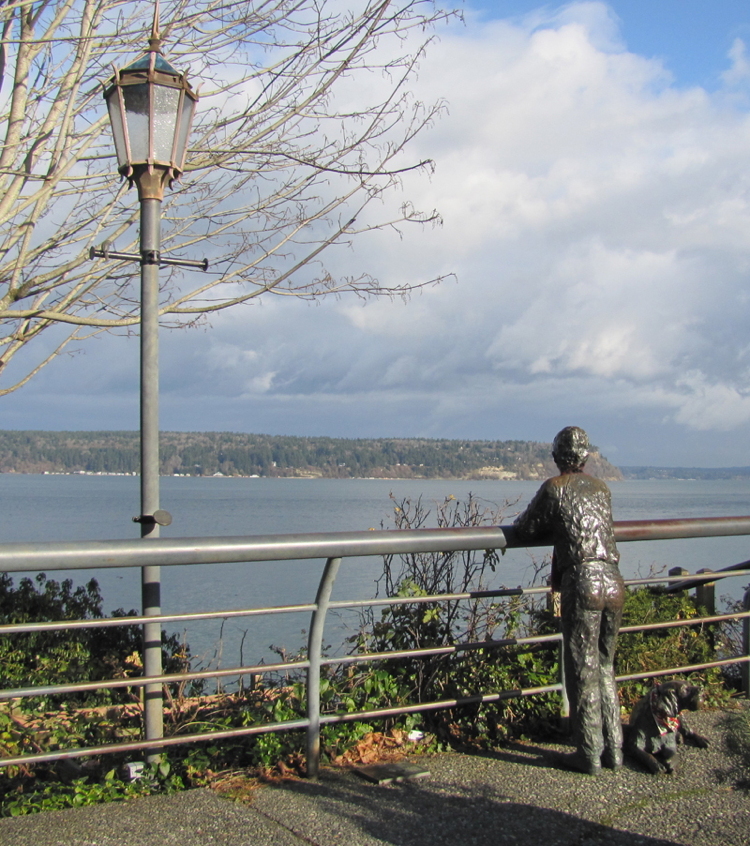
2016. Antique lamp with small chickadee sculpture on the cross piece (Courtesy Robert Waterman).
An antique street lamp from Los Angeles, California was placed in the park, and a small statue of a chickadee by Georgia Gerber dedicated to Caroline Satterberg was attached to it in 1990.
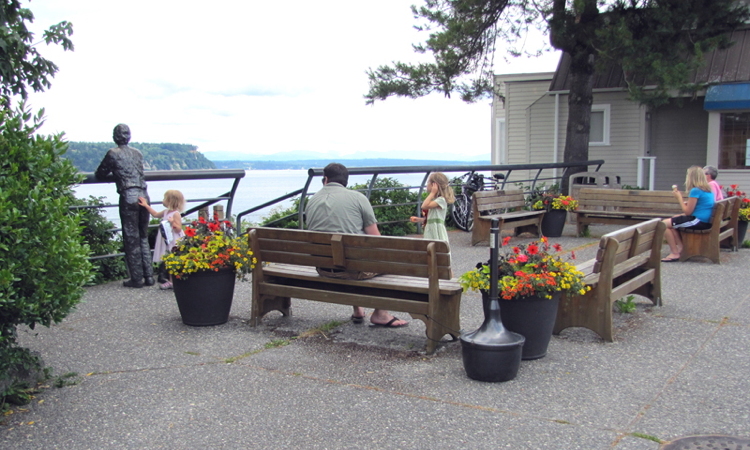
2015. Robert Smith ("Boy and Dog") Park (Courtesy Robert Waterman)
An original set of park benches was replaced by new benches, and flower pots were added to create a popular seating area and lookout point for locals and visitors. The park is also is the site of occasional community events.